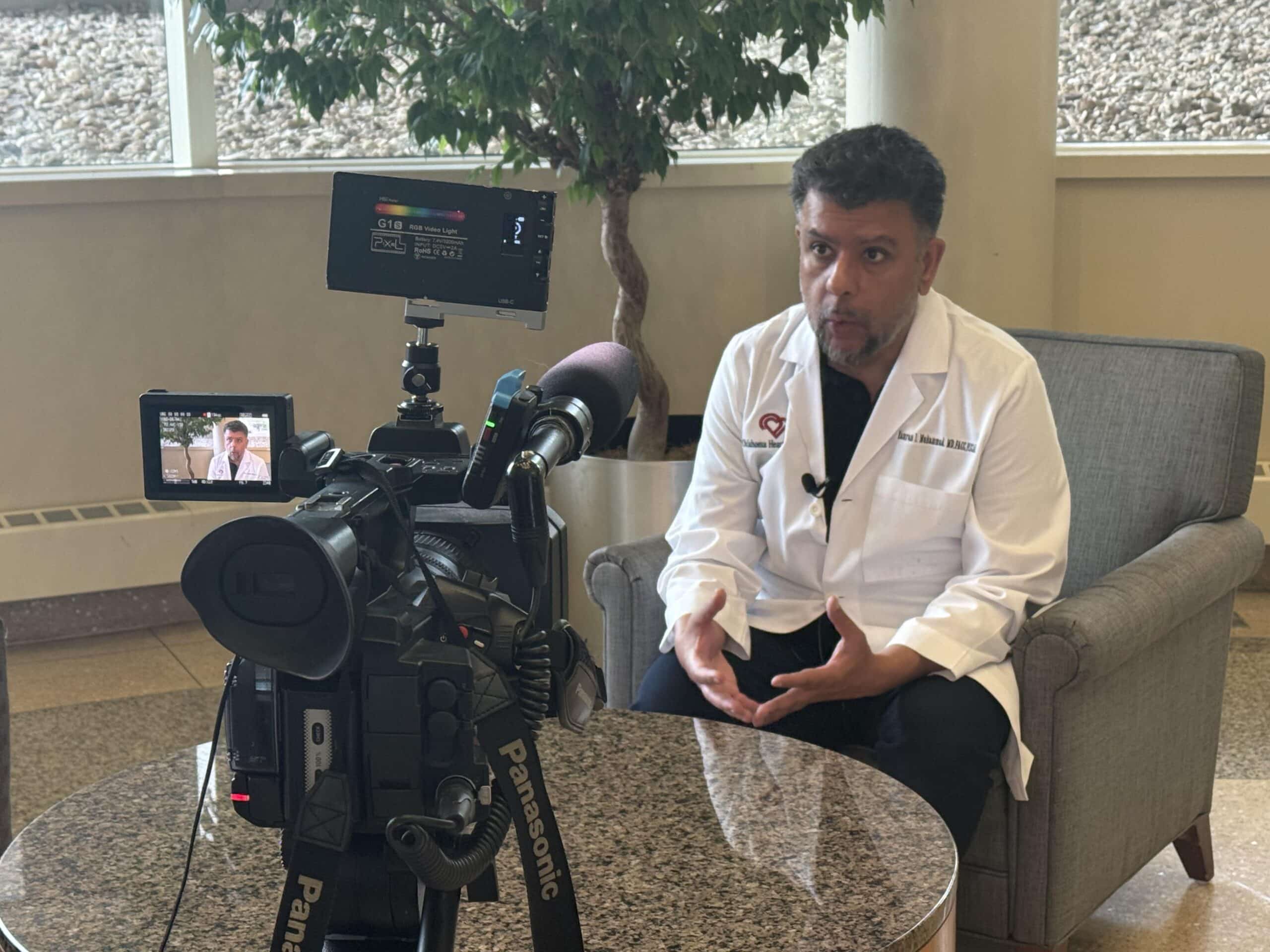Technology studied at Oklahoma Heart Institute (OHI) is being used around the world. Dr. Kamran Muhammad, director of cardiovascular research and our structural disease program, recently traveled to Europe to train physicians in Switzerland and Germany on the Sapien M-3 valve, which treats mitral regurgitation. He spoke to News on 6‘s Jayden Brannon about this life-saving procedure and what it means for the future of heart health. You can view the full story here.
A team at the Oklahoma Heart Institute is helping patients across the globe with a groundbreaking device that could change how doctors treat mitral valve disease.
Developed by Edwards Lifesciences and tested in Tulsa, the Sapien M-3 transcatheter mitral valve replacement system is now in use overseas after gaining regulatory approval in Europe. The minimally invasive device offers new hope to patients who are not eligible for traditional heart surgery.
A new approach to mitral valve disease
The mitral valve helps regulate blood flow through the heart. Over time, it can wear out, leading to mitral valve disease—a condition that typically requires surgery or catheter-based repair. But not all patients are candidates for those treatments.
The Sapien M-3 valve, inserted through a catheter in the leg, gives doctors another option—one that doesn’t require open-heart surgery.

Local research, global impact
Dr. Kamran Muhammad, director of cardiovascular research at the Oklahoma Heart Institute, helped test the valve over several years in Tulsa during the devices ENCIRCLE Trial. After successful clinical trials here, he helped physicians use it for the first procedures overseas in Switzerland and Germany.
“Most people can leave the hospital in a day or two after this because it’s done without any surgery,” Dr. Muhammad said. “That really suits high-risk patients, which this is geared toward, or patients unsuitable for heart surgery or edge-to-edge repair. The patients we’ve treated have been so grateful because they’ve gotten their lives back.”
European approval, U.S. in progress
The device received CE Mark approval in Europe in April, allowing doctors to begin using it across the continent. That’s roughly the European equivalent of FDA approval in the United States.
Dr. Muhammad said the device could be a game-changer for tens of thousands of patients who have had no viable treatment options until now.
“There are a huge number of patients who this can benefit,” he said. “We’ve just either not been treating them or helping them limp along with medications that don’t fix the valve problem and just relieve the symptoms temporarily. The gates will open with its approval in Europe, and it’ll make its way to Asian, the Middle East and eventually the United States.”
What’s next for Oklahoma Heart Institute?
Despite lacking FDA approval, the Oklahoma Heart Institute can still perform the procedure thanks to its clinical trial results. That allows some patients in Oklahoma to access the valve ahead of broader U.S. use.
Dr. Muhammad and his team are hopeful the Sapien M-3 valve will receive FDA approval sometime next year.
This story was written by News on 6’s Jayden Brannon. You can view the full video here. You learn more about heart valve disease treatment options at OHI here.

